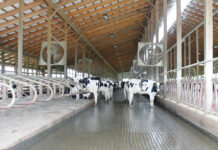During the past month, OSU Extension has been offering a series of two-day workshops across Ohio for Income Tax Preparers.
I, along with Barry Ward and Chris Bruynis, have the privilege of teaching the Agricultural & Natural Resources Tax section at these workshops.
As many of you know, 2019 has been a roller coaster year for Ohio farmers. Low commodity prices, historic rainfall, and the trade dispute with China have been huge stressors to farmers. Additionally, farmers and tax preparers are still adjusting to the tax changes created by last year’s Tax Cuts and Jobs Act.
As we have been teaching across Ohio, our team has been asked a variety of questions so today I would like to share a few of these with you.
Q. The wet spring weather caused us not to plant any crops. We received an insurance check for the prevented plant acreage as well as sold our 2018 corn and soybeans this year. This means we have two years of income bunched into 2019 with minimal expenses to offset it with. Is there a way to delay some of this income?
— From a farmer in Williams County, Ohio
A. Generally, you must claim income in the year which it is received. However, when disastrous weather strikes, the Internal Revenue Service does allow farmers the option of postponing the reporting of crop insurance proceeds to the next year. This deferral protects farmers from recognizing excessive income in one year when their regular practice would have been to sell the crop in the following tax year. The key to this deferral is the farmer must normally sell more than 50% of their crops in the year after it was grown.
Farmers who want to defer crop insurance payments should talk to their tax preparer about the I.R.C. § 451(f) deferral.
As with anything, there are exceptions and exclusions. One wrinkle is that for revenue based insurance policies, only the amount received for crop failure can be deferred. If a portion of the insurance payment was made for price-loss, that portion cannot be deferred. There are also provisions to delay receipts from livestock sales if the sale was triggered due to weather issues. This deferral is limited to the amount which is above what would normally be marketed in the tax year. Bottom line, there are a lot of rules to deferring income so it is very important to consult with your tax preparer.
• • •
Q. I received a Market Facilitation Payment (MFP) from the Farm Service Agency for the impact which the trade dispute with China has had on commodity markets. Can I defer this income like the crop insurance payment?
— From a farmer in Coshocton County, Ohio
A. The quick and definite answer is NO! MFP payments are to be claimed in the year which they are received. Depending on when a farmer signed up for the MFP program, they may have received both the 2018 and 2019 payments in 2019. Both would need to be claimed as 2019 income. Other governmental payments such as those received from the NRCS’s Environmental Quality Incentives Program are also reported as income in the year it is received.
• • •
Q. I heard there is some type of new business deduction as a result of tax reform. Is this true? Also, I was also told this deduction is different if I sell my grain to a cooperative.
— From a farmer in Wayne County, Ohio
A. Yes to both questions. The 2018 tax reform legislation set a flat rate of 21% for all C-Corporations. Because this flat rate was only for C-Corporations, legislators had to level the playing field for other business entities such as Sole-Proprietorships and Partnerships as their tax rates could be as high as 37%.
This led to the development of the Qualified Business Income (QBI) Deduction. This deduction allows for a deduction of up to 20% of qualified business income. For farmers who sell their milk, livestock, or grain to cooperatives, an additional adjustment has to be made. This adjustment gets tricky especially if the farm has W-2 wages. So again, it is imperative to talk to your tax accountant.
OSU Extension is committed to helping farmers and tax preparers answer these questions and many more. In eastern Ohio, a Farm Tax Update will be held in Coshocton County Dec. 2 at 7 p.m. and then in Tuscarawas County Dec. 19. Call the Coshocton County Extension office at 740-622-2265 to register for the Dec. 2 workshop and Tuscarawas County Extension office at 330-339-2337 to register for the Dec. 19 workshop.
There will be a state-wide Farm Tax Webinar Jan. 13, 2020, from 1 to 3 p.m. The registration for the webinar $35 per person. More details about this webinar can be obtained at go.osu.edu/FarmerTaxWebinar or by calling 614-292-2433. Check out the Ohio Ag Manager Website at http:ohioagmanager.osu.edu for tax articles and for details on upcoming tax programs.
In closing, I would like to share a quote from Albert Einstein who said, “The hardest thing to understand in the world is the income tax.”












